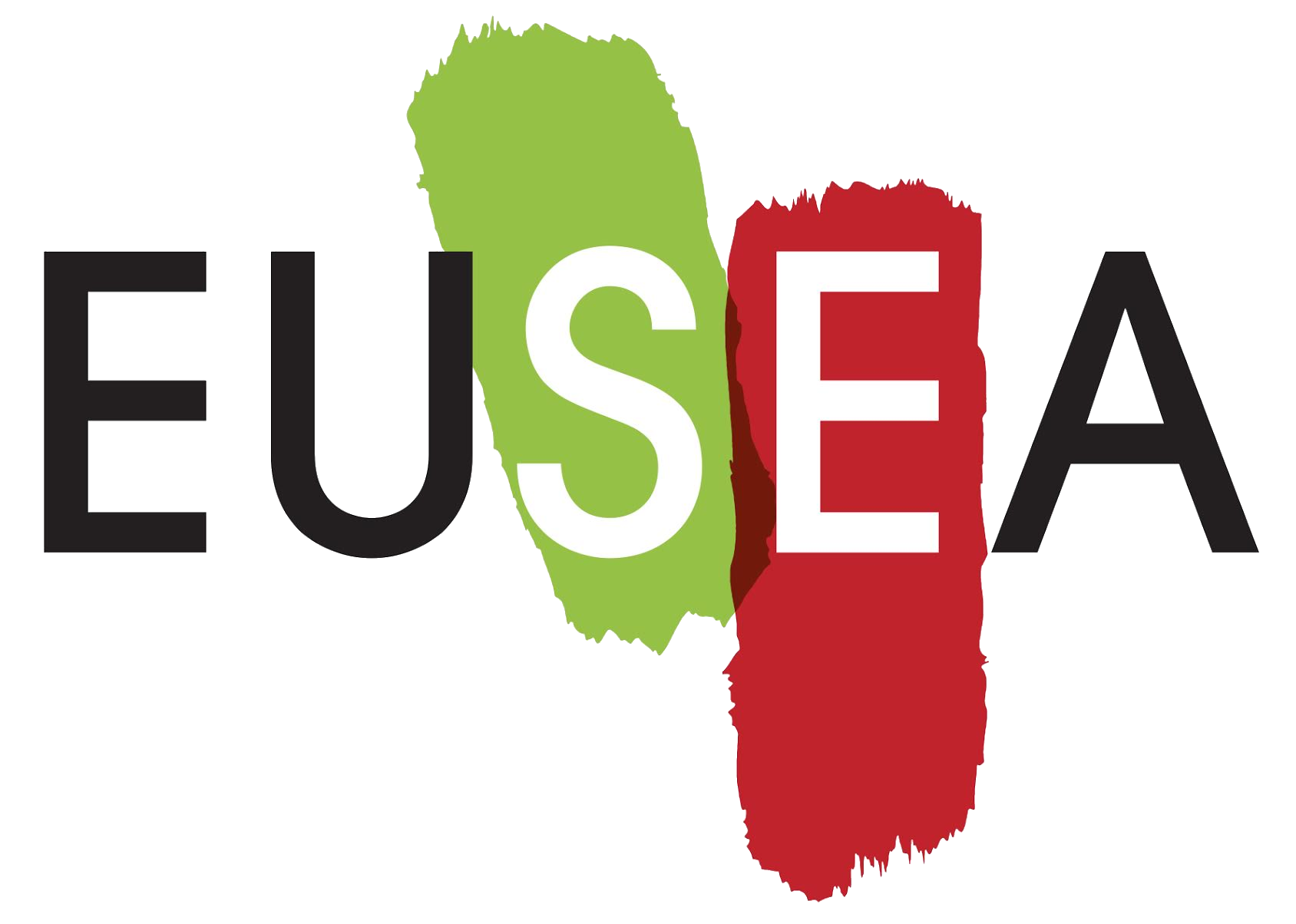
#EUSEA2021 – More than a Birthday!
THANK YOU to all friends, colleagues and guests who helped us to celebrate 20 years of EUSEA in such a creative and joyful way!
Although it might not have been the birthday party we would have originally planned, we wouldn’t have changed it for anything (well almost- we do hope that COVID will go away soon). We made the best of the situation, and we heard fantastic contributions from our keynote speakers, shared memories of the early days of the organisation, and we also had time to get a little silly in some creative communication workshops!
We would like to thank everyone who made our birthday such a success, and for those of you who couldn’t make it, or just want to relive the experience…
…continue reading for a full round-up of the week!
#EUSEA2021 – More than a Conference
More than 300 participants from 30 countries: Australia, Austria, Bulgaria, China, Czechoslovakia, Denmark, Finland, France, Germany, Greece, Hungary, India, Ireland, Island, Israel, Italy, Luxemburg, Malaysia, Netherlands, Poland, Romania, Russia, Scotland, South Africa, Slovenia, Spain, Sweden, Switzerland, Thailand, and UK. Science engagement practitioners joined from everywhere in the world for the 2021 European Science Engagement Conference, which took place on December 7.
The Conference, which also represented the occasion to celebrate EUSEA’s 20th birthday, featured an interactive pre-conference bake off to prepare a birthday cake in an online co-creative happening.
The main conference started with a virtual coffee facilitated by Jon Rea, Public Engagement Lead at Nottingham City Council. The official opening was entrusted to Cissi Askwall, EUSEA President and Secretary General of Vetenskap & Allmänhet, Stockholm, Sweden. “We are an association open to everyone interested in public engagement – stressed Askwall –. EUSEA is and offers a platform where an international community wide open to cooperation and co-creation can share ideas”. During the opening, participants could enjoy the energizing performance of Aron Leijendeckers, percussionist at the Nordwestdeutsche Philharmomie in Herford, Germany.



The conference continued with the keynote speeches of Dr. Margaret Heffernan, author and innovator, and Linden Farrer, Policy Officer at the European Commission. Heffernan focused her intervention on strategic thinking, conflict management, fruitful collaboration, and collective intelligence. Do we really want to go back to normal, after the disruption of the pandemic? Are we willing to challenge the status quo of our approaches and institutions? Are we ready for some productive disagreements and constructive criticism? During her speech, she explained which are the characteristics of high-performing and creative teams. According to research, what it takes is empathy, equal contribution, and a high percentage of female team members. “What matters the most, in collaboration, is what happens between the people – said Heffernan –. This is important in scientific endeavours. When you try to do something new, at some point you are likely to get to an extremely difficult path. Other people keep people going, when issues arise”. She explained that collaboration is not about many people working in isolation in the same space. “It’s about having different people, different bodies of knowledge to bring to the table, different voices”, she concluded.

Farrer focused his keynote on societal engagement in Horizon Europe, the EU’s key funding programme for research and innovation with a budget of €95.5 billion. Farrer explained that societal engagement is an integral component of EU open science policy. “Open science practices – he stressed – include involving all relevant knowledge actors such as citizens, civil society and end users in the co creation of R&I agendas and contents”. Promoting the involvement of citizens in research and innovation contributes to excellence, effectiveness, but also to boost trust of society in science. He provided an overview of successful practices and projects, namely involving co-design, co-creation and co-assessment. Farrer also mentioned a Eurobarometer survey about European citizens’ knowledge and attitudes towards science and technology, explaining that in Europe there is a high level of interest in science, and that this increased during the COVID-19 pandemic. “Open science is the modus operandi of the entire Horizon Europe programme – he commented –. Co-design, co-creation and engagement of citizens are mainstreamed across the programme”. Farrer explained that societal engagement is considered part of the excellence criterion during proposal evaluation. “We are trying to change the way researchers are rewarded, to move beyond the publish or perish logic”, he concluded.

The afternoon was the occasion to look back and into the future, with founding mothers and fathers sharing their stories from the early years. Peter Rebernik, Joachim Lerch, Mikkel Bohm and Janneke Voltman talked about how the idea of an association like EUSEA took shape.
Science festivals around the world, exchange schemes with peers, and the ambition to use science to convey peace in difficult areas. But also the need to bring science where audiences already are, as well as the testing of innovative initiatives such as science coffees for girls and programs for disabled persons. From the very beginning, creating a network to share ideas was one of the goals, explained Lerch. Over time, what emerged was the idea of learning how to develop the European dimension of the association, to avoid the risks of self-referentiality. This was one of the main aspects that emerged during the session featuring all EUSEA Presidents and Directors, namely Herbert Muender, Leonardo Alfonsi, Jan Riise, Markus Weißkopf, Annette Klinkert and Cissi Askwall. The network is an antidote to self-referentiality for those working in science communication, stressed Alfonsi. “EUSEA has been able to bring different perspective together, diverse ways of thinking, and to create something new out of it”, added Klinkert.

Improving the impact of EUSEA at the European level appeared as one of the main challenges to be tackled in the years to come, as well as the one of digitalisation and development of new formats of public engagement, and the role that EUSEA can play to help scientists meet the expectations of funding bodies in terms of stakeholders’ engagement.
But what are the perspectives on public engagement outside of Europe? Which are the major challenges faced? Global network partners shared their visions in the panel facilitated by Kenneth Skeldon, Research Engagement Manager, University of Glasgow, Scotland, UK. The panel featured interventions from Dr Jenni Metcalfe, Director of the Australian company Econnect Communication and President of the Public Communication of Science and Technology Network, Shadrack Mkansi, Science Awareness Platforms Manager at the South African Agency for Science and Technology Advancement, Ganigar Chen from the National Science Museum Thailand, and Liu Xiaokan, Deputy President of Beijing Association for Science and Technology.
Metcalfe explained that what she learned throughout her career, is that best science communication happens when we develop positive relationships, and when we pay attention to kindness, lightness, and grace. She also stressed that, when it comes to communicating science, what counts the most is deploying the skill of listening. Not only can listening help nurture constructive alliances, but it can also help change attitudes.


The perspective brought in by Mkansi, is the one of funding bodies. Mkansi explained that, in ordinary times, the main issue that science engagement would face, would be the availability of policies ensuring appropriate funding. Nonetheless, today the major challenge is the pandemic, which has stopped them to engage face to face with target audiences while also entailing considering issues such as broadband availability within the communities they want to reach out to. Mkansi also explained that many opportunities have though arisen, such as the embedding of schemes funding science engagement within national policies, or the chance to engage with international partners across boundaries.
Chen stressed that one of the key issues they are confronted with is the one of how to get all the agencies related to either science or public engagement to work in synergy. Many other challenges are at stake too, including the urgence to keep up with an evolving science, and the empowerment of science museums and learning centres. She explained that in Thailand they are trying to leverage on several aspects, such as making museums more cutting edge, emphasizing festiveness, accentuating the aspect of competition to attract the young generation, integrating culture, and building a network of science communicators to foster synergies.


Xiaokan focused his intervention on the challenges posed by the fact that traditional means of science communication is evolving, which requires to explore new ideas and avenues to keep up with such changes. He also mentioned the issue of disinformation, coupled with the fact that citizens demand higher quality for science communication. It is crucial to rely on the authority of official science communication channels to improve trust and dispel myths, he underlined. Thinking about how to communicate science in a more innovative manner, improving already existing formats, but also opening up to new scenarios. This is what is at stake today, according to Xiaokan.

Later in the afternoon, science communication practitioners run parallel interactive workshops with the goal to co-create inputs for the community. Dr. Sam Illingworth led a workshop on science poetry, David Price from Science Made Simple facilitated a workshop on science busking, Lewis Hou and Science Ceilidh led a workshop on science and dancing, while Dyane Neiman and Bear Storytelling led a workshop on science and storytelling.
Before starting the celebrations for the EUSEA’s 20th birthday, the team provided an outlook into the conference which will be held in April next year at the Munster Technological University’s renowned Cork School of Music, in partnership with Science Foundation Ireland.



















